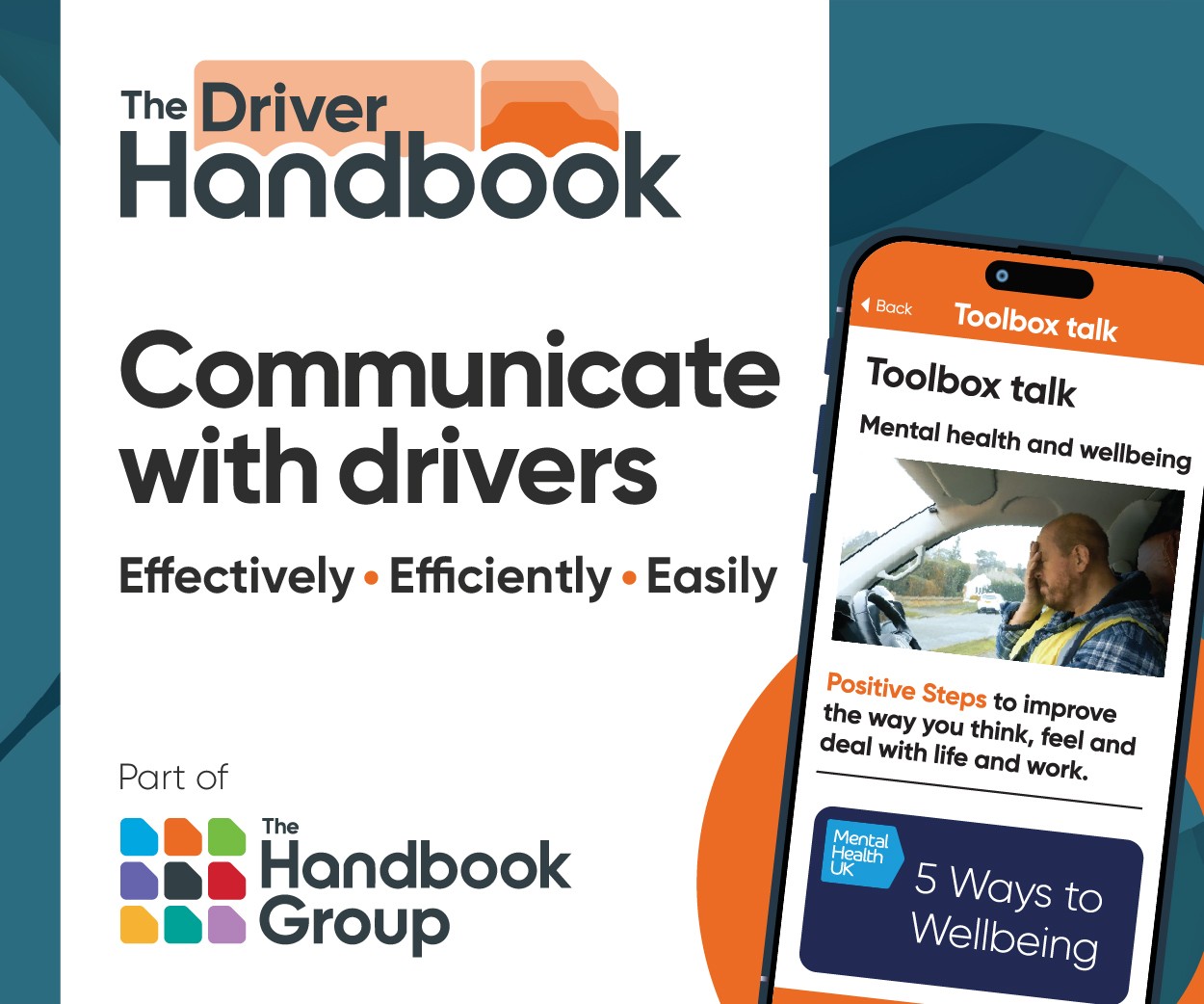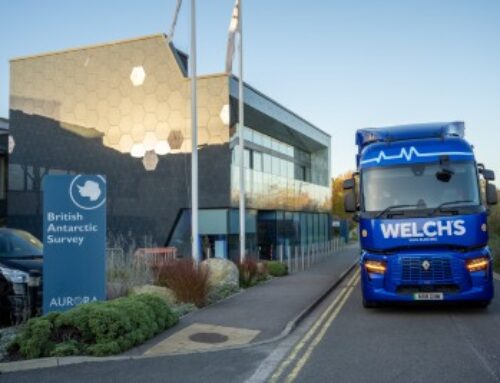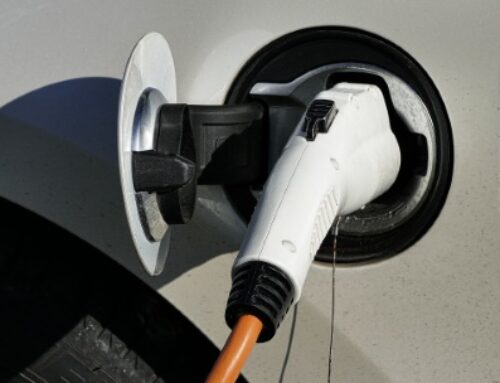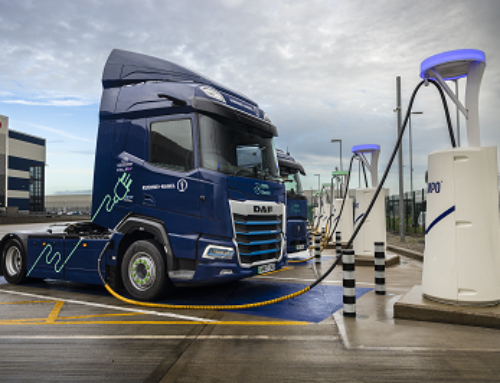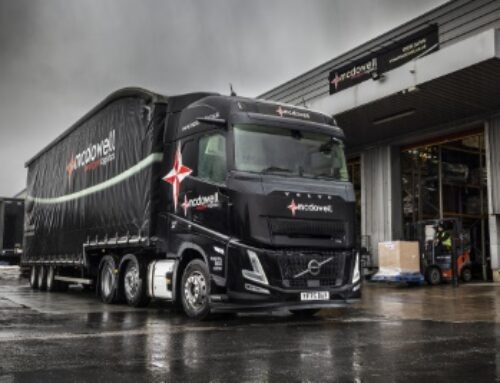RHA: operators need support on road to net zero
 Road Haulage Association managing director Richard Smith (pictured, right) explained to delegates at the Microlise Transport Conference that the fragmented nature of the transport industry meant operators could not be expected to decarbonise without external assistance.
Road Haulage Association managing director Richard Smith (pictured, right) explained to delegates at the Microlise Transport Conference that the fragmented nature of the transport industry meant operators could not be expected to decarbonise without external assistance.
“Eighty-five per cent of the industry is operators running less than 15 trucks,” he said.
“If new roads and facilities are being built now, then we need to know what the future fuel requirement is.
“Do our 30,000 diesel mechanics need to become 30,000 automotive electricians?”
He added: “Our members say we will still need diesel in 2050, and not a lot of people here today will want to hear that.”
RHA head of policy for environment and regulation, Chris Ashley, said that all parts of the UK would need to be catered for with net zero.
“And that includes remote areas that are home to industries such as forestry and quarrying,” he warned.
“The public will expect all services to continue in spite of net zero.”
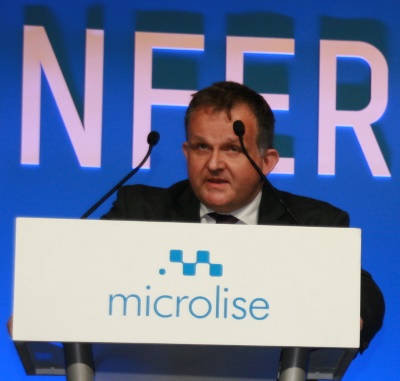 Mr Ashley (pictured, right) said he was confident that for vehicles of up to 18 tonnes, battery electrics would be the way ahead, but over that, the technical solution was as yet unknown.
Mr Ashley (pictured, right) said he was confident that for vehicles of up to 18 tonnes, battery electrics would be the way ahead, but over that, the technical solution was as yet unknown.
The capital cost of electric vehicles was three times that of diesel and the infrastructure was an unresolved challenge.
“Operators, manufacturers, fuel providers, insurers, the government, the devolved nations and the European Union will all need to collaborate.
“Local authorities are a worry. We need to see greater engagement from them.”
He warned that some local authorities had “tasted blood” with vehicle use charging and might see net zero as a money-making opportunity.
“Operators are investing in zero emissions vehicles, but need to see support for infrastructure.”
Low-carbon fuels such as HVO and biogas needed support and guarantees to aid the transition.
Creating a zero emissions heavy vehicle infrastructure would require incentives to bring down cost, and vehicles needed to be put in the hands of operators for real world trials.
He questioned the UK government’s own commitment to achieving its stated net zero ambitions.
“Our government is not even on the same page as Germany’s,” he warned.
Ask the audience
Instant electronic polling of the 1,200 industry professionals at the Microlise conference provided an interesting insight into their attitudes to decarbonisation and plans for the future.
A lack of real-world testing of alternative truck fuels was a major concern. Forty-three per cent of the audience thought industry should prioritise vehicle trials in preparation for net zero, with 21 per cent each choosing infrastructure and financial incentives. Just 13.5 per cent saw skills development as the major priority.
When it came to what the government should prioritise, the answers given were rather different: over 59 per cent said infrastructure, 32 per cent said financial incentives and less than 5.5 per cent said vehicle trials. Less than three per cent said skills development.
Lack of infrastructure was seen as the major obstacle to decarbonising their business by nearly 48 per cent of delegates. Thirty-one per cent said it was the lack of clarity on the preferred fuel option, over 16 per cent said it was a lack of financial support, and four per cent the non-availability of vehicles.
No one was concerned by the lack of a scrappage scheme, which if nothing else indicates confidence that demand for used diesel vehicle vehicles is likely to remain very strong.
Uncertainty over future fuels was rife: asked what the fuel of the future would be, nearly 11 per cent said battery, and only 2.7 per cent chose hydrogen fuel cell. Hydrogen combustion was by far the most acceptable single solution at over 16 per cent, while supply issues no doubt contributed to less than 5.5 per cent choosing low-carbon fuels such as HVO and CNG.
Twenty-seven per cent opted for ‘all of the above’ and almost 38 per cent for ‘some of the above’, indicating the complete lack of clarity on the issue so far. Over 71 per cent of the audience said they were insufficiently informed to be able to reach net zero!
Meanwhile, recruiting staff for positions in logistics is getting harder, according to nearly half of the delegates who attended the conference.
Asked if recruitment was getting harder or easier compared to last year, over 11 per cent said it was “very hard” and 34 per cent said recruitment was “hard” compared to last year. Thirty-five per cent said recruitment was easier or much easier than in 2022.


